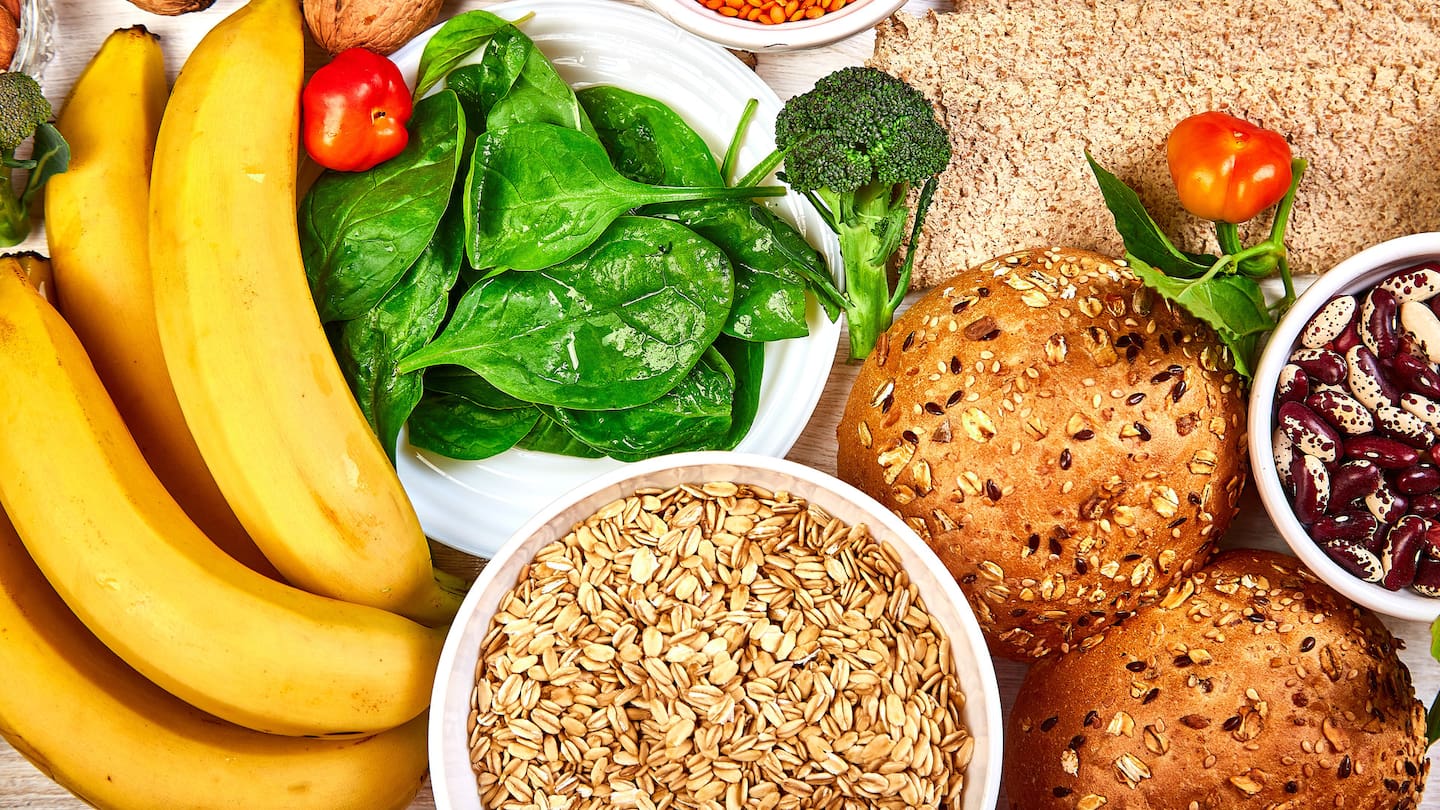
New study shows that fibre can help keep your brain healthy as you age. It also has other surprising benefits, but most of us aren't getting enough of it.
Fibre is like the middle child of all the macronutrients. Carbs and fats don't get that much attention, but protein does. But fibre isn't thought about until something goes wrong. But if you talk to gut experts, they'll tell you that it's the quiet performer that starts a huge number of biochemical chain reactions that are important for long-term health and, of course, routine.
We already know that getting enough fibre is good for your gut system, helps you control your weight, lowers your risk of heart disease, and keeps your blood sugar levels in check. Now, a new study shows that taking a fibre pill every day might help people over 60 keep their brains healthy. The study from King's College London was released in the journal Nature Communications. It found that people did better on cognitive tests after taking a cheap daily supplement of prebiotics for 12 weeks. Prebiotics are plant fibres that can help healthy bacteria grow in your gut.
But with the average Brit getting around 18g of fibre a day, just over half the national dietary limit of 30g, it’s time for fibre to come out of the shadows and onto our plates. But is that as easy as having a bowl of All-Bran for breakfast or do we have to start giving fibre the attention we give other food groups?
Why fibre is the hidden hero in our diet
“Everyone’s obsessed with protein but deficiency is virtually unheard of in Britain,” says Dr Federica Amati, the head nutritionist at the Zoe app and a research associate at the School of Public Health, Imperial College London. “As many as nine in 10 people aren’t getting enough fibre, though,” she says. And we’re suffering the results. About 16 in 100 of us have symptoms of constipation and in the over-60s, that number rises to 33 (see below). Plus, at any given time, about 5 per cent of us have constant diarrhoea – ironically, often for the same reason. “While a large proportion of people are living with constipation daily, another large group have regular diarrhoea and don’t realise this is often caused by a low-fibre diet that’s high in meat and ultra-processed foods,” says Dr Amati.
The long-term effects could be even more wide-reaching. A large-scale meta-analysis published in The Lancet in 2019 analysed 185 observational studies and found a 15-30 per cent decrease in all-cause and cardiovascular-related mortality in those who ate 25-29g of fibre each day compared with those who had less. They also had 16-24 per cent lower chances of getting coronary heart disease, stroke, Type 2 diabetes and colorectal cancer. Not surprisingly, a higher-fibre diet is also linked to a lower risk of irritable bowel syndrome (IBS).
What is fibre?
At its simplest, fibre is the indigestible component of plant foods. It comes in different forms, each of which plays its part in supporting health. There’s soluble fibre, found in oats, legumes and fruits, which dissolves with water to form a gel-like substance that helps control blood sugar levels and lower cholesterol. Insoluble fibre, on the other hand, is found in vegetables, nuts, seeds, whole grains – and All-Bran – and adds bulk to stools and helps avoid constipation (among many other things – see below). Then there’s resistant starch, which fights digestion in the small intestine and is found in bananas, beans and cooled starchy foods such as potatoes and plays a key role in a healthy gut.
They’re all essential – and linked – so nutritional experts say it’s superfluous to emphasise the different categories. “Speaking about soluble and insoluble fibre is unhelpful because in nature, most foods contain a bit of both, which is why we try to get people to eat a mix of different fibrous foods,” says Dr Amati. “But when you take fibre supplements, these will usually contain isolated soluble fibre, which is helpful if you have constipation or diarrhoea as well as for regulating the bowel.”
How can you tell if you have had enough fibre?
First, are you regular? “The primary way of knowing if you’re getting enough fibre is having a bowel movement once or twice a day, and that your poo is coming out comfortably and quickly with no straining,” says Dr Amati. In fact, results from Zoe’s Big Poo Review undertaken in July last year found that Brits poo an average of 1.6 times a day, and that women spend about 3.53 minutes on the loo while men spend an average of 5.26 minutes. Reading on the loo is off, then.
Second, what’s your poo like? They should break off easily, be more like a long, smooth sausage instead of pellets, well formed and “not smushy’', advises Dr Amati. “Unless you have irritable bowel syndrome, you shouldn’t be feeling bloated if you’re getting enough fibre.” The third clue comes from your general wellbeing. Your gut plays such a big role in your mental health and immunity, so that things such as low mood or a tendency to catch any bug going could also be minor signs that your gut health could do with some help.
Why is it so important for health?
Unlike with protein, fats and carbs, our bodies lack the enzyme to break down fibrous foods, Dr Amati says. “High-fibre meals are bulky and usually low-energy, which means it takes a lot longer for your stomach to empty. So if you have fibrous wholemeal bread with an egg and avocado, it will take longer to digest and absorb and help to keep your blood sugar level more than if you removed the bread. That also promotes fullness.”
Fibre also aids the removal of extra waste products from the body as these are put back into the gut for release after the body has used what it needs. “If you have plenty of fibre in your colon, it will take with it as it passes, substances that could build up and be harmful like cholesterol, unused oestrogen and other hormones as well as toxins like those from the breakdown of alcohol.”
But how can something that does most of its work in the large intestine have effects as far-reaching as the brain, as was found in the King’s College research? It’s because fibre’s third and most important function is as a prebiotic; this is the non-digestible type of fibre found in certain foods – all plants contain them but some are especially high, such as Jerusalem artichokes, chicory, garlic, onions, apples, flaxseeds, leeks, asparagus and wheat bran. Prebiotics feed the helpful bacteria (probiotics) in our guts through a fermentation process. “By-products of that fermentation process are what we call postbiotics, which are healthy compounds like short-chain fatty acids that produce enzymes, hormones and neurotransmitters that benefit many different functions in your body including immunity, weight, mood and brain health,” says Dr Amati.
There may be other things at work too, says Claire Steves, a professor of ageing and health at King’s College London, who led the study (above). Participants were given a powdered supplement to put over their breakfast foods each day. It contained inulin and FOS (fructooligosaccharides), which are types of prebiotic fibres. After 12 weeks, their results on cognition tests improved.
More study is needed on how this happened, but it could be the potential reduction of inflammation in the body impacting brain function, Prof Steves points out. “There may be direct communication from the gut microbiome to the brain through what we call the gut-brain axis, which is believed to happen through the vagus nerve,” she says. “The vagus nerve is a long nerve found in the neck that travels through the chest and abdomen connecting the brain to major organs such as the large intestine, heart and lungs.”
Should you take a fibre supplement?
“A lot of people aren’t getting enough fibre and it takes time to get used to eating more,” says Dr Amati. “I recommend taking a fibre supplement alongside dietary changes if people need to substantially increase their fibre intake.” Inulin and FOS used in the King’s brain study has a lot of other research and benefits, she says. “But avoid it if you have IBS as it could make it worse.”
Dr Amati recommends mixed fibre supplements made by Indi, which the Zoe team works with, and Myota, which has been researched at Imperial College London – Myota Metabolic Booster includes inulin and FOS. Or you can ask for supplements of inulin and FOS from your local health food shop.
How about old-fashioned – and dirt-cheap – psyllium husks, an insoluble fibre made from the Plantago ovata plant that absorbs water and grows in the digestive tract? Too harsh for daily use, says Dr Amati, as they could clog up your bowels and make your symptoms worse if overdone. Psyllium is helpful for rare times when you need them. “If you have a period where your bowel is quite irregular, for example post-antibiotics, taking psyllium husks until things level out again can help.” They’re available from pharmacies and health stores and you mix them with a big glass of water.


Comments
Post a Comment